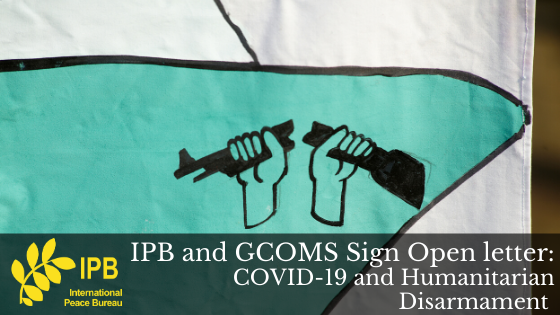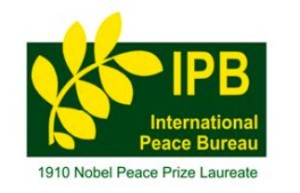“The COVID-19 pandemic has taken a heavy human and economic toll and shattered lives in many countries. The pandemic has also underscored that global solutions should be used to address global problems, in the current crisis and after it ends. Now is the moment to reflect on the world as it is and consider a better alternative for the future. A “new normal” should go beyond the field of public health to deal with other matters of ongoing international concern, including the humanitarian consequences of arms and armed conflict as well as peace and security more broadly.
Humanitarian disarmament, an approach to governing weapons that puts people first, can help lead the way to an improved post-pandemic world. Humanitarian disarmament seeks to prevent and remediate arms-inflicted human suffering and environmental damage through the establishment and implementation of norms. Originating in the mid-1990s, it has generated four international treaties, been recognized with two Nobel Peace Prizes, and inspired ongoing efforts to reduce other arms-related harm.
Humanitarian disarmament’s twin pillars of prevention and remediation should guide the allocation of resources to advance human security. COVID-19 has caused people to take a fresh look at states’ budgetary choices. To prevent arms-inflicted harm, governments and industry should stop investing in unacceptable weapons as well as strengthen the protection of civilians from the use of weapons and ensure arms transfers comply with international law. The money spent on nuclear arsenals and other military expenses could be better used for humanitarian purposes, such as health care or social spending. To remediate harm, governments should redirect money to programs that assist victims, restore infrastructure, clear explosive ordnance, and clean up conflict-related pollution. Funding the multilateral institutions that set standards on these topics and ensure their implementation would also advance humanitarian disarmament’s goals.
The principles of inclusion and non-discrimination, which are fundamental to humanitarian disarmament, should inform measures to address the inequalities that COVID-19 has exposed and exacerbated. The pandemic has increased the challenges faced by conflict survivors and other persons with disabilities due to the vulnerability of certain groups, their inability to access health care and basic necessities, and restrictions on aid workers. A humanitarian disarmament response would ensure that such inequality and marginalization do not become entrenched. It would also promote more sensitive programs than existed before. States and humanitarian actors should broaden efforts to involve affected individuals and diverse populations in decision-making, gather data disaggregated by gender, age, disability, and ethnicity, and deliver assistance in a non-discriminatory manner.
Inclusivity and accessibility should underpin diplomacy as it emerges from its current digital state. Since the pandemic led to a global lockdown, in-person disarmament meetings have been canceled, postponed, or held digitally. While face-to-face meetings have important advantages, once they resume, the international community could increase inclusivity and accessibility by permitting meaningful online participation at multilateral meetings. Individuals, including survivors and other persons with disabilities, who are unable to travel due to lack of funding or visa restrictions, could add their voices to critical discussions about setting and operationalizing norms.
Finally, international cooperation should become a standard way to address global issues, as it is in humanitarian disarmament. Humanitarian disarmament treaties, which mandate international coordination, information exchange, and resource sharing, offer models of cooperation. States should adopt a cooperative approach to addressing the human and environmental harm inflicted by arms and increase their assistance to affected states. Such a cooperative mindset, reinforced by the pandemic experience, should carry over to other multilateral efforts to create, implement, and adapt international norms.
As the world transitions to a post-pandemic reality, we call on states, international organizations, and civil society to follow humanitarian disarmament’s lead. The international community should prioritize human security, reallocate military spending to humanitarian causes, work to eliminate inequalities, ensure multilateral fora incorporate diverse voices, and bring a cooperative mindset to problems of practice and policy. Together we can reshape the security landscape for the future and help create a new—and improved—“normal.””

